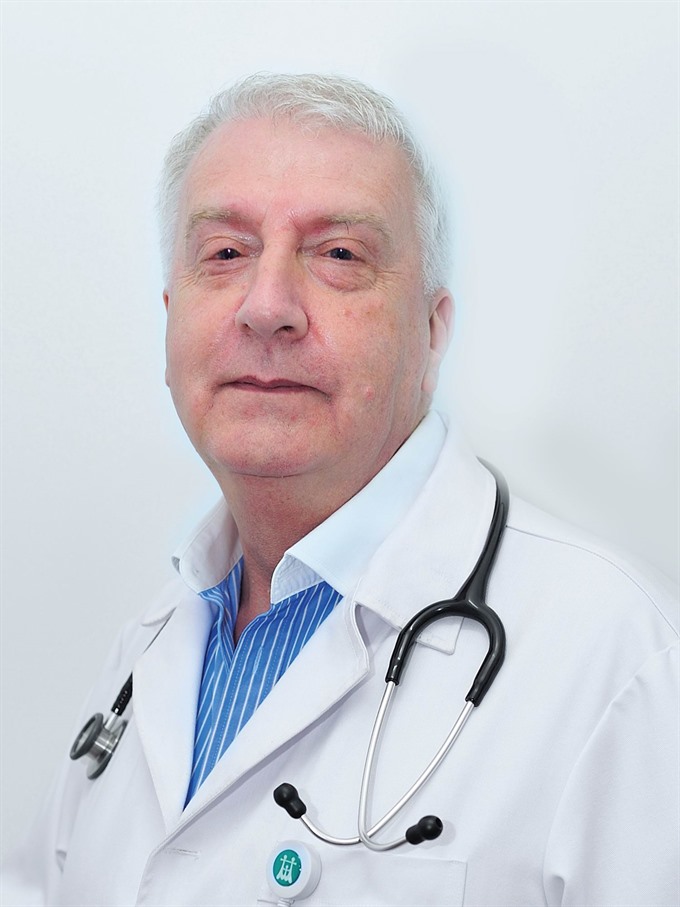 Life & Style
Life & Style

Dr. Brian McNaull* talks about food poisoning, and more importantly, about good food hygiene that can greatly reduce the risk of food poisoning.
 |
| Dr. Brian McNaull — Photo courtesy of Family Medical Practice Hanoi |
Dr. Brian McNaull* talks about food poisoning, and more importantly, about good food hygiene that can greatly reduce the risk of food poisoning.
Is it really dangerous to eat from street food stalls in Hà Nội?
Where we eat often determines the risk of developing food poisoning. So eating ‘on the street’ from many of the roadside restaurants can substantially increase the risk for all expatriate Hanoians. It can also make it difficult to determine what foods actually caused the sickness.
Most of the bacterial (Salmonella, Shigella, Campylobacter,Vibrio) causes of diarrhea and vomiting incubate from between 1 to 5 days, although Staphylococcal infection from cream sauces and pastries can develop within a few hours of ingestion. On the other hand, parasitic diseases like Giardia may take 1 to 2 weeks to develop symptoms and viral hepatitis A (from contaminated shellfish) may take up to a month before symptoms are noted.
We have all suffered from mild stomach upsets but when should we seek medical advice?
Yes, first let me say the classic symptoms of food poisoning are diarrhea and vomiting, maybe with cramps and fever as well. If the diarrhea persists for more than a day, is initially profuse within the first 24 hours, contains blood and there is either significant abdominal pain and/or fever, then you should seek medical advice right away.
Who is at most risk of food poisoning?
Food poisoning is especially serious and potentially life-threatening for young children, pregnant women and their fetuses, older adults, and people with weakened immune systems. These individuals should take extra precautions by avoiding the following foods, although the advice applies to all:
What can one do to prevent or greatly reduce the likelihood of food poisoning?
Thoroughly wash your hands, utensils and food surfaces often. Keep raw foods separate from ready-to-eat foods. When shopping, preparing food or storing food, keep raw meat, poultry, fish and shellfish away from other foods. This prevents cross-contamination. Cook foods to a safe temperature. You can kill harmful organisms in most foods by cooking them to temperatures between 145 F (62.8 C) and 165 F (73.9 C). Refrigerate or freeze perishable foods promptly. Refrigerate or freeze perishable foods within two hours of purchasing or preparing them. If the room temperature is above 90 F (32.2 C), refrigerate perishable foods within an hour. Put food in the freezer if you don’t expect to eat it within two days.
Defrost food safely. Do not thaw foods at room temperature. The safest way to thaw foods is to defrost foods in the refrigerator or to microwave the food using the "defrost".
Throw it out when in doubt. If you aren’t sure if a food has been prepared, served or stored safely, discard it. Food that may look ‘Ok’ and smell normal may in fact be unsafe! — Family Medical Practice Hanoi
*Dr. Brian McNaull serves as Medical Director at Family Medical Practice Hanoi, a branch of Family Medical Practice Vietnam. He brings extensive experience to the practice. He has worked in Emergency Medicine, as a GP, a leukemia specialist at Sick Kids Toronto and as a liver consultant at Mt. Sinai, Toronto. For more information or medical advice, please contact: hanoi@vietnammedicalpractice.com




